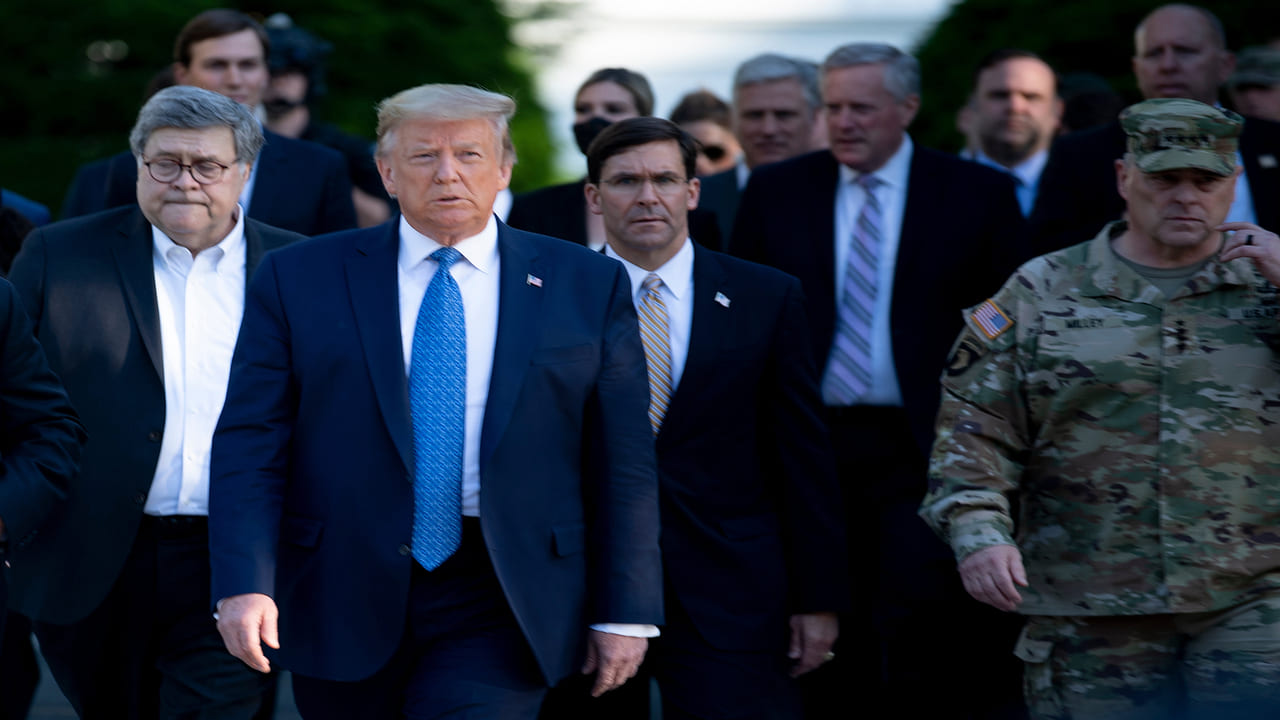
IndependentReport – The Trump Portland announcement quickly became a focal point of political debate in the United States. Former President Donald Trump declared that federal forces might need to be sent into Portland, Oregon, to restore order and suppress unrest. This statement triggered a wave of concern, particularly among state officials and civil rights advocates, who feared that federal intervention could escalate tensions rather than resolve them.
In response to the growing controversy, the Pentagon confirmed that around 200 members of the National Guard had been called up. Officials insisted that this step was not a direct endorsement of Trump’s statement. But rather a precautionary measure to ensure that additional security forces would be available if unrest intensified. The move highlighted the delicate balance between federal authority and state autonomy in managing public safety.
Trump’s words about sending federal troops into Portland were immediately met with pushback from local leaders. Oregon officials criticized the statement as an infringement on state rights, stressing that law enforcement within the city should remain under local jurisdiction. They argued that allowing federal troops to intervene could undermine trust in the community and worsen existing tensions.
At the same time, Trump’s supporters defended the announcement, claiming that Portland had been plagued by disorder and that stronger intervention was necessary to restore stability. This clash of perspectives underscored a broader political divide in the United States. Where issues of law enforcement, federal power, and civil liberties remain highly contested.
Also Read : US Military Leaders Focus on Modernization, Global Threats in Key Meeting
Although Pentagon spokespeople clarified that the decision was not a direct result of the Trump Portland announcement, the timing made it clear that the statement influenced federal planning. The National Guard has historically been mobilized to support local authorities during emergencies, ranging from natural disasters to civil unrest. In this case, officials said that activating troops was a way to prepare for potential instability.
Critics of the move pointed out that the deployment of even a limited number of troops carries symbolic weight. To many observers, the activation served as a message that the federal government was willing to escalate its role if necessary. To others, however, it was simply a logistical step to ensure readiness.
Several underlying factors contributed to the Pentagon’s decision to mobilize 200 National Guard troops. These can be summarized as follows:
Each of these reasons reveals how the Pentagon’s decision was influenced not only by immediate security concerns but also by the political climate surrounding the Trump Portland announcement.
The decision to call up troops has sparked debate about the role of federal power in managing local unrest. Civil rights groups expressed alarm, warning that deploying federal or military forces in domestic disputes risks eroding constitutional freedoms, particularly the rights to protest and assemble. These concerns were amplified by memories of previous clashes between protesters and federal officers in Portland during Trump’s presidency.
Meanwhile, defenders of the announcement argue that decisive action is sometimes necessary when local authorities fail to maintain order. They claim that the presence of the National Guard demonstrates a willingness to protect citizens and property, even if it requires overriding local objections. This tension reflects the ongoing struggle in American politics between prioritizing security and safeguarding civil liberties.
Read More : Google Really Start on September 27? The Truth Behind the Date
Beyond immediate security concerns, the Pentagon’s action carries clear political consequences. The Trump Portland announcement has once again placed issues of law enforcement and federal authority at the center of national discourse. For Trump, the controversy highlights his continued influence over debates on security and public order. For the Biden administration, managing the response requires careful navigation between reassuring the public. Avoiding the appearance of endorsing Trump’s aggressive stance.
Looking ahead, the situation in Portland may serve as a bellwether for broader national debates. If unrest intensifies, more forceful intervention could follow. If tensions ease, critics may argue that the activation of troops was an unnecessary provocation. Either way, the episode underscores how statements from political leaders even those outside of government can ripple through institutions and shape real-world security decisions.
This Article About Trump Portland Announcement Written by: Ayu Azhari | Editor: Micheal Halim
Information Source: Reuters.com